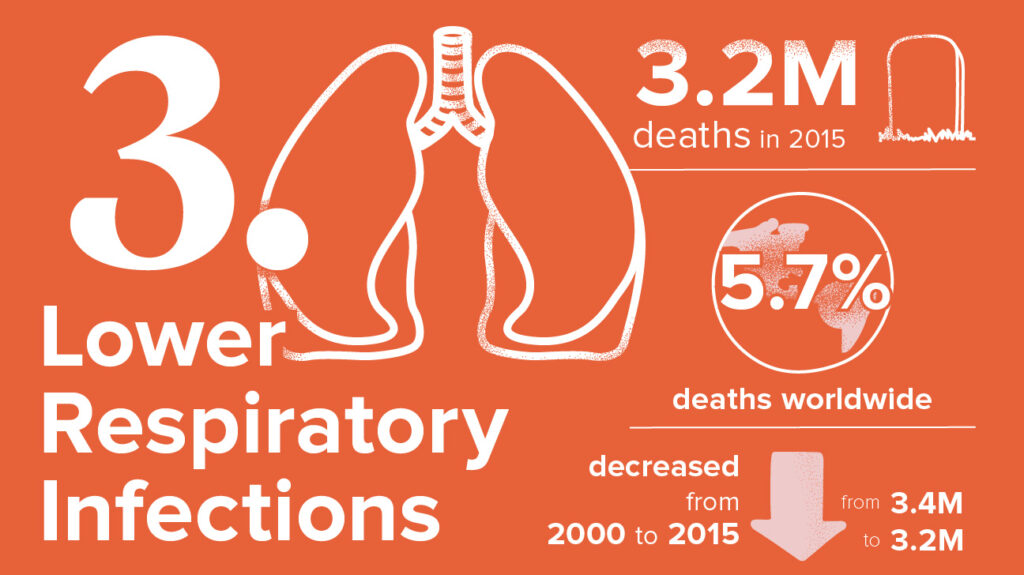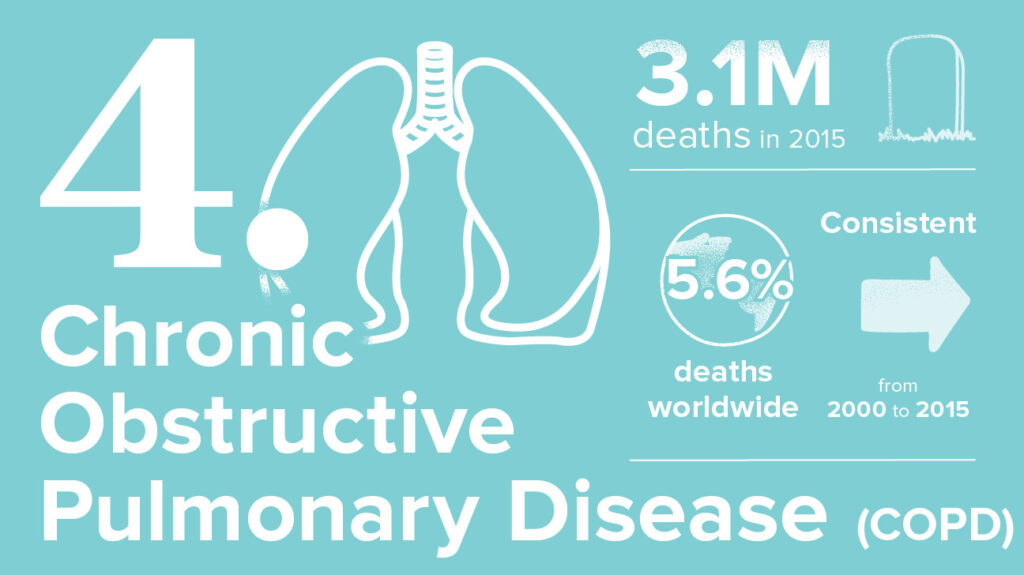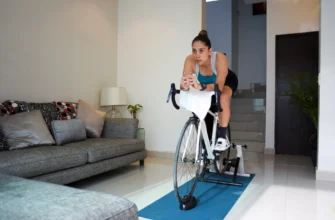3. Lower respiratory infections

An infection in your lungs and airways is referred to as a lower respiratory infection. It could result from:
- influenza, or the flu
- pneumonia
- bronchitis
- tuberculosis
Lower respiratory infections are frequently brought on by viruses. Bacteria may also be to blame. The primary sign of a lower respiratory infection is coughing. Additionally, you can have chest tightness, wheezing, and shortness of breath. Lower respiratory infections that go untreated can cause mortality and breathing problems.
Impact of lower respiratory infections around the world
Risk factors and prevention
Lower respiratory infections are at risk for:
- the flu
- poor air quality or frequent exposure to lung irritants
- smoking
- a weak immune system
- crowded childcare settings, which mainly affects infants
- asthma
- HIV
Getting the flu vaccination each year is one of the strongest preventative steps you can take against lower respiratory illnesses. Pneumonia vaccines are also available for those who are most at risk. To prevent the spread of bacteria, wash your hands often with soap and water, especially before touching your face or preparing food. If you have a respiratory illness, stay at home and relax until you feel better since rest speeds up recovery.
4. Chronic obstructive pulmonary disease

Breathing becomes difficult as a result of the long-term, progressive lung condition known as chronic obstructive pulmonary disease (COPD). Emphysema and chronic bronchitis are examples of COPD. Worldwide, there were around 64 million persons with COPD in 2004Trusted Source.
Impact of COPD around the world
Risk factors and prevention
COPD risk factors include:
- smoking or secondhand smoke
- lung irritants like chemical fumes
- family history, with the AATD gene being linked to COPD
- history of respiratory infections as a child
The course of COPD can be slowed down with treatment, but there is no known cure. Quitting smoking and avoiding secondhand smoke and other lung irritants are the greatest methods to stave against COPD. Getting therapy as soon as you can if you have any COPD symptoms improves your outlook.








